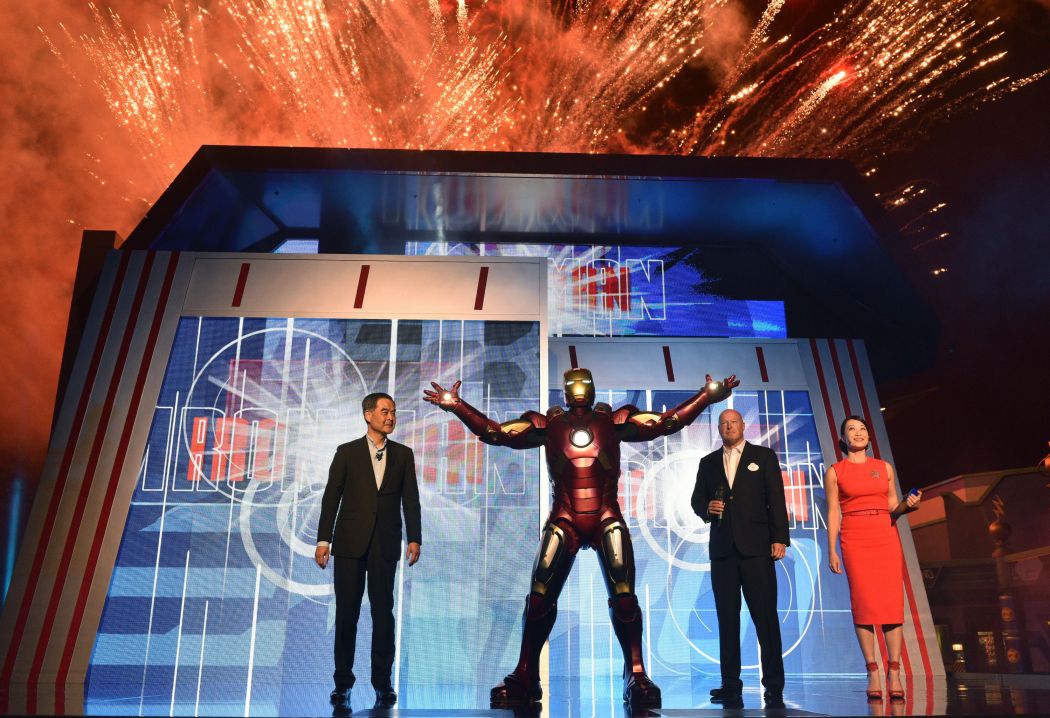The Legislative Council has passed a HK$5.45 billion funding proposal for the expansion of Hong Kong Disneyland, despite questions from some lawmakers over its necessity and the government’s failure to negotiate better terms.
The funds will come from the government’s Capital Investment Fund, meaning taxpayers’ money will be injected into Disneyland.
Since the proposal was put on the Finance Committee agenda in early April, some lawmakers have attempted to stall the proposal by speaking frequently and moving additional motions. They said the current deal with the Walt Disney Company to share the cost was not favourable.

But at the meeting on Tuesday, a motion was passed with the support of the pro-Beijing camp to cut short the debate time for additional motions. The pro-Beijing camp also voted down more than 40 motions raised by pro-democracy camp lawmakers.
The funding proposal was then passed with 30 “yes” votes and 24 “no” votes. The plan was opposed by several pro-democracy camp lawmakers and a number of pro-Beijing camp lawmakers.
Initially, the government was expected to inject HK$5.8 billion of public money into the HK$10.9 billion project, with the company paying the rest. The arrangement was a reference to the ratio of shares each party holds in the theme park. But it was later agreed that each party would split costs equally.

The amusement park will be building Frozen and Marvel themed areas as part of the expansion.
‘A humiliation’
Secretary for Commerce and Economic Development Gregory So Kam-leung told lawmakers last week that Disney’s attitude over the proposal was “take it or leave it,” suggesting the expansion plans would not be built if lawmakers opposed to it.
Michael Tien Puk-sun, independent pro-Beijing lawmaker, described the proposal as a “humiliation” for Hong Kong.
He said the government has yet to change its mentality in that it has to continue funding the theme park: “Whenever Disney blows the whistle, you kneel down instantly.”
“Nobody said there shouldn’t be development. But development does not mean being mugged without resisting, taking us as an automated teller machine,” Tien added.
He asked for a renegotiation: “We should tell them ‘you take it or leave it – if you don’t want it, we will give it to other tourist attraction projects.’”

Democratic Party lawmaker Lam Cheuk-ting said HK$5.4 billion could be used to provide medicine for thousands of patients with rare diseases for ten years – a reference to a protest by patients which was under way outside the legislature over the lack of care.
“I completely agree with Michael Tien – this is a humiliation,” he said. “They said ‘take it or leave it’, then you just accepted it – you are such easy prey.”
“Have you ever done any business, Secretary [So]? Doing business is like that, sometimes you make bluffs, sometimes they make bluffs… I don’t see any real negative effect on Hong Kong if the proposal failed,” he added. “They would just renegotiate.”

Last year, Disneyland reported its first loss in four years in light of a slump in mainland Chinese tourism. It lost HK$148 million for the year 2014/15.
In February this year, it reported another loss of HK$171 million for the year 2015/16.
Pro-Beijing lawmaker Ann Chiang Lai-wan said she would not invest in the project if she were an investor, but she supported the motion to cut short the debate.
She said some projects should not be shut down even though they lose money, giving examples such as public broadcaster RTHK and public swimming pools.
